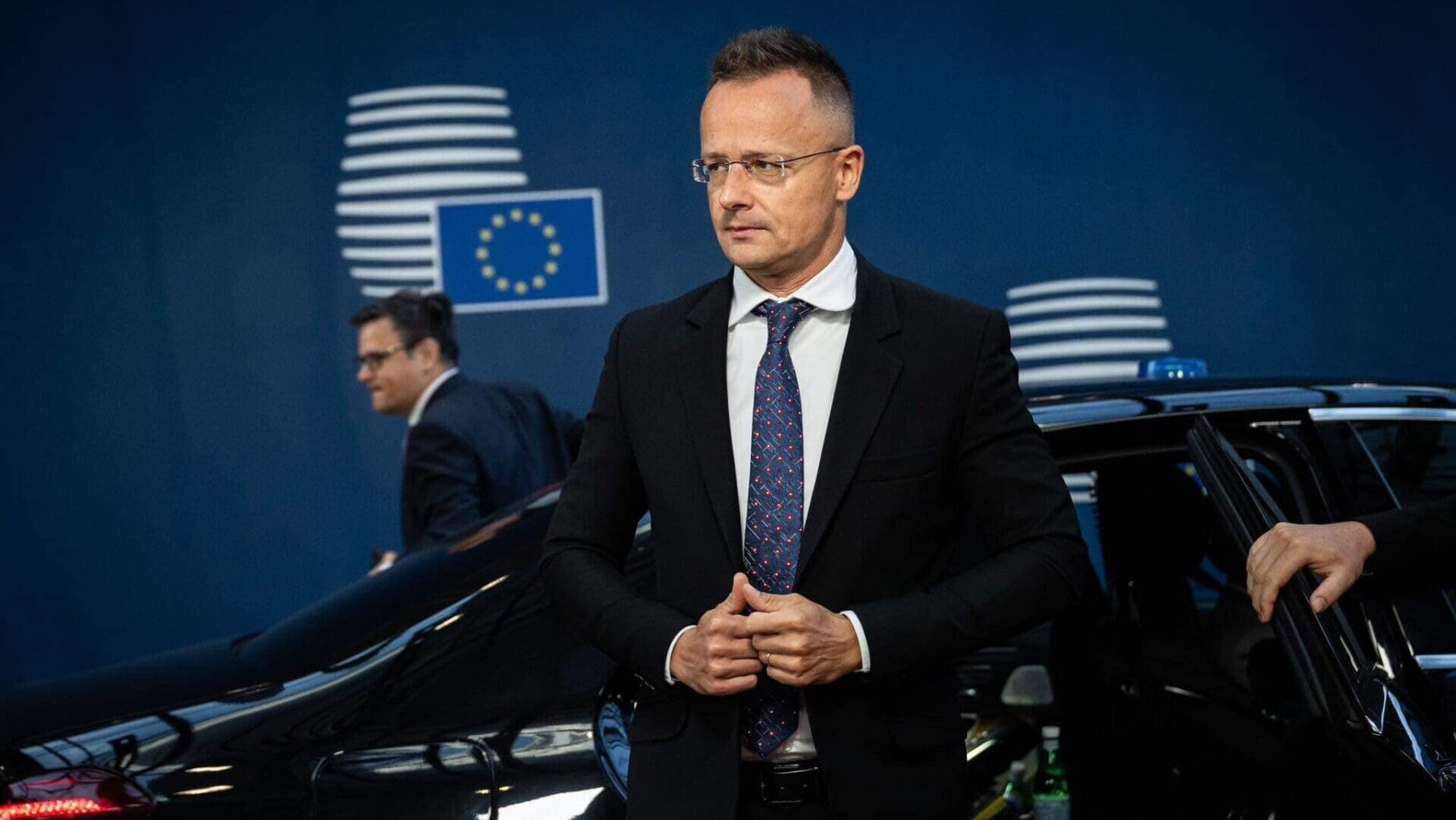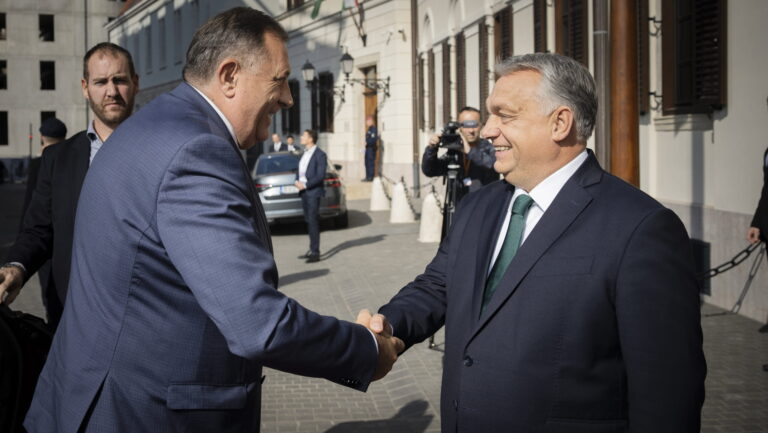Hungary and Slovakia have jointly initiated a consultation procedure with the European Union against Ukraine over the country’s unexpected and unfriendly move to partially halt oil supplies, Hungarian Minister of Foreign Affairs and Trade Péter Szijjártó said in Brussels on Monday.
The Ukrainian leadership has recently decided to halt shipments of Russian oil to Hungary and Slovakia through Ukraine, due to the sanctions imposed on the Russian oil sector.
According to a statement by the Ministry of Foreign Affairs and Trade, Péter Szijjártó said at a press conference following the EU Foreign Affairs Council meeting that the Ukrainian decision to shut down the transit of Russian oil by Lukoil seriously endangers the energy supply of Hungary and Slovakia. He pointed out that energy supply is not a political but an infrastructural issue, and since Hungary’s oil needs cannot be met without Russian sources due to the lack of alternative transport routes, the country, along with Slovakia and the Czech Republic, has been exempted from EU sanctions on imports.
He recalled that Lukoil currently accounts
for one-third of Hungarian oil imports and around 45 per cent of Slovakian oil imports,
making the Ukrainian ban a fundamental threat to the energy security of both countries. ‘This is an unacceptable and incomprehensible move by a country that wants to be a member of the European Union and that, with a single decision, puts the oil supply of two EU member states at fundamental risk,’ he said.
Szijjártó added that, for the time being, the situation has been stabilised with temporary solutions, but in the medium term, the security of oil supplies to Hungary and Slovakia cannot be ensured without Lukoil’s shipments.
‘Therefore, we are in constant consultation with the Slovak government in order to resolve the situation. I also spoke on the phone yesterday with the Ukrainian Foreign Minister, who assured me that there is no problem and that all kinds of shipments are being allowed through Ukraine, which is obviously not true,’ he said. ‘Lukoil shipments have been unable to arrive in Hungary for several weeks now. With this new legislation, Ukraine has banned the transit of oil shipments from Lukoil,’ he continued.
Szijjártó stated that this is
a violation of the EU–Ukraine Association Agreement,
which stipulates that Kyiv cannot interrupt the transit of energy resources to EU member states.
He also pointed out that the agreement stipulates that in such cases, the affected Member State can immediately launch a consultation procedure in which the European Commission is obliged to represent it. If no solution is found, an arbitration tribunal can be established, and a procedure can be initiated within forty days. Should no resolution be reached, the EU has the right to suspend certain treaty obligations, such as duty-free access.
‘Today, together with Slovakia, we have initiated the pre-arbitration consultation with the European Commission. This is an urgent matter, as the security of energy supply is a critical issue. The European Commission has three days to hold this consultation with Ukraine, and if it is unsuccessful, the arbitration procedure will be launched,’ Szijjártó emphasized.
The Hungarian FM said that the two countries are working on various legal and technical solutions to ensure uninterrupted oil supplies in the event that no short-term solution is found. ‘We are in constant contact and are outlining solutions that can secure our energy supply in the long term,’ he stated.
He also described the Ukrainian decision as unfriendly and unexpected, especially considering that the neighbouring country imported most of its electricity from Hungary in June, accounting for 42 per cent of its total imports. ‘Moreover, the company that operates the Hungarian electricity grid has made significant efforts to connect Ukraine to the European grid,’ he added. He further noted that at the beginning of July, Slovakia and Hungary, along with Poland, provided Ukraine with emergency aid to help it maintain its energy system.
Related articles:








